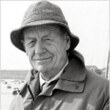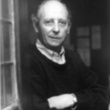Ancient light
Description
More Details
9780449013458
Excerpt
Similar Series From Novelist
Similar Titles From NoveList
Similar Authors From NoveList
Published Reviews
Booklist Review
*Starred Review* Settling into a meditative retirement, stage actor Alexander Cleave finds himself writing about the summer he was 15 and embroiled in a mad and taboo love. He much prefers recalling the wildness of his insistent young self than dwelling on the unhappy life and inexplicable death of his enigmatic daughter. Following the mischief of The Infinities (2010), Banville's breathtaking new novel is defined by light, from the ancient light of the stars to the glimmering fool's gold of memories. As Alex tries to pin down the uncomfortable truth about his delirious, risky affair with his best friend's mother, he reflects on how all his desperate lies ultimately helped him become an actor. His lush if dismaying reverie is interrupted by an out-of-the-blue invitation to star in an American movie, a biopic about, of all subjects, a vile critic whose life may have some vague link to Alex's daughter's death. Banville, a writer of exquisite precision and emotional depth, writes with droll inquisition and entrancing sensuality in this suspenseful drama of the obliviousness of lust and the weight of grief. Alex's misremembered love story and complicated movie adventures are ravishing, poignant, and archly hilarious as the past and present converge and narrow down to a stunning revelation. Banville is supreme in this enrapturing novel of shadows and illumination.--Seaman, Donna Copyright 2010 Booklist
Publisher's Weekly Review
In Man Booker Prize-winner Banville's 16th novel, the Irish author reprises the character of Alex Cleave, who first appeared in 2000's Eclipse, and then two years later in Shroud. Cleave, a has-been theater actor, reminisces about his 15th summer, "half a century ago," when he had an affair with his best friend's mother, Mrs. Gray, who, he tells us, was "unhappy then," lest readers judge her too harshly for bedding a minor. Interwoven with this vividly drawn summer is Cleave's current existence, which is saturated with pain and regret: His daughter, Cass, flung herself off the Italian coast 10 years ago, and his wife, Lydia, still sleepwalks in the night to rampage through the house in search of her. When, out of the blue, Cleave is offered a role in a biopic of literary critic Axel Vander entitled The Invention of the Past, life and art intertwine beguilingly for Alex, who is engaged in the tricky business of inventing his own past; how is he to unravel the strands of his existence when memory is such an unreliable muse? The problem with this book is that the past is beautifully-perfectly-imagined; it's Alex's over-determined present that's unbelievable. First printing: 60,000. (Oct.) © Copyright PWxyz, LLC. All rights reserved.
Library Journal Review
Retired actor Alexander Cleave plumbs his memory to describe his first "love," a 15-year-old's unlikely affair with his best friend's mother. Early on, Alex confides he is sure that the affair's inevitable discovery will be devastating to both, spending the greater part of the novel (with many close calls) elsewhere before revealing that discovery. All this relates somehow to the shaping-or misshaping-of Alex's psyche in relation to his daughter, Cass, featured in two prior Alexander Cleave novels, who died by suicide. Despite the sordid plot and a muddled subplot involving Alex costarring in a motion picture, the book is given a terrific reading by Robin Sachs. Verdict This will likely be of considerable interest to award-winning author Banville's (The Infinities) fans and so is recommended for adult fiction collections.-Cliff Glaviano, formerly with Bowling Green State Univ. Libs., OH (c) Copyright 2013. Library Journals LLC, a wholly owned subsidiary of Media Source, Inc. No redistribution permitted.
Kirkus Book Review
A novel that traps the reader inside the mind of the narrator, a reflective but not very perceptive actor, as his self-absorption turns from the human condition, the passage of time and the creative memory to, obsessively, his teenage sexual initiation with the mother of his best friend. One's appreciation of the latest from the award-winning Banville (The Sea, 2005, etc.) largely depends on patience with the protagonist, for the entire novel takes place inside his mind, a mind prone to distortions of memory and little insight into anyone, least of all himself. For Alexander Cleave, a semiretired stage actor improbably cast as the lead in a film (a bio flick portentously titled The Invention of the Past), "the past seems a puzzle from which the most vital pieces are missing." A half-century earlier, when he was 15, he had a summer-long affair with his friend's mother, Mrs. Gray. He seems to have little idea how it started, why it persisted and whether the two of them were even particularly attracted to each other. She had just marked her 35th birthday and had lost a baby, though the narrative mentions these only in passing. It would undoubtedly be a very different novel if Mrs. Gray were the protagonist, a narrative which Alexander might not even recognize as his own life. "I do not know what anyone thinks; I hardly know what I think myself," he admits. He and his wife (who barely figures in the novel) seem like little more than strangers to each other, their relationship irrevocably damaged by the suicide of their mentally disturbed daughter a decade earlier. His debut film experience weaves together various strands from his life and memory, yet he remains (as do we all?) "a Crusoe shipwrecked and stranded in the limitless wastes of a boundless and indifferent ocean." Banville writes beautiful sentences, while recognizing the limits and deceptions of language, in a meditation on themes that he has better explored elsewhere.]] Copyright Kirkus Reviews, used with permission.
Booklist Reviews
*Starred Review* Settling into a meditative retirement, stage actor Alexander Cleave finds himself writing about the summer he was 15 and embroiled in a mad and taboo love. He much prefers recalling the wildness of his insistent young self than dwelling on the unhappy life and inexplicable death of his enigmatic daughter. Following the mischief of The Infinities (2010), Banville's breathtaking new novel is defined by light, from the "ancient light" of the stars to the glimmering fool's gold of memories. As Alex tries to pin down the uncomfortable truth about his delirious, risky affair with his best friend's mother, he reflects on how all his desperate lies ultimately helped him become an actor. His lush if dismaying reverie is interrupted by an out-of-the-blue invitation to star in an American movie, a biopic about, of all subjects, a vile critic whose life may have some vague link to Alex's daughter's death. Banville, a writer of exquisite precision and emotional depth, writes with droll inquisition and entrancing sensuality in this suspenseful drama of the obliviousness of lust and the weight of grief. Alex's misremembered love story and complicated movie adventures are ravishing, poignant, and archly hilarious as the past and present converge and narrow down to a stunning revelation. Banville is supreme in this enrapturing novel of shadows and illumination. Copyright 2012 Booklist Reviews.
Library Journal Reviews
At the end of a stuttering career, suddenly revived by a role-of-a-lifetime movie turn, actor Alexander Cleave looks back at his first and probably only love—a charged and ultimately catastrophic passion at age 15 for his best friend's mother. Then there's his daughter, whose own scary turn of mind he cannot understand. Always an honored writer, Banville has gained a bigger audience here since winning the Man Booker Prize for The Sea, so this probing study of memory's shiftiness will be anticipated. With a reading guide and a six-city tour.
[Page 53]. (c) Copyright 2012. Library Journals LLC, a wholly owned subsidiary of Media Source, Inc. No redistribution permitted.Publishers Weekly Reviews
In Man Booker Prize-winner Banville's 16th novel, the Irish author reprises the character of Alex Cleave, who first appeared in 2000's Eclipse, and then two years later in Shroud. Cleave, a has-been theater actor, reminisces about his 15th summer, "half a century ago," when he had an affair with his best friend's mother, Mrs. Gray, who, he tells us, was "unhappy then," lest readers judge her too harshly for bedding a minor. Interwoven with this vividly drawn summer is Cleave's current existence, which is saturated with pain and regret: His daughter, Cass, flung herself off the Italian coast 10 years ago, and his wife, Lydia, still sleepwalks in the night to rampage through the house in search of her. When, out of the blue, Cleave is offered a role in a biopic of literary critic Axel Vander entitled The Invention of the Past, life and art intertwine beguilingly for Alex, who is engaged in the tricky business of inventing his own past; how is he to unravel the strands of his existence when memory is such an unreliable muse? The problem with this book is that the past is beautifully—perfectly—imagined; it's Alex's over-determined present that's unbelievable. First printing: 60,000. (Oct.)
[Page ]. Copyright 2012 PWxyz LLCPW Annex Reviews
In Man Booker Prize-winner Banville's 16th novel, the Irish author reprises the character of Alex Cleave, who first appeared in 2000's Eclipse, and then two years later in Shroud. Cleave, a has-been theater actor, reminisces about his 15th summer, "half a century ago," when he had an affair with his best friend's mother, Mrs. Gray, who, he tells us, was "unhappy then," lest readers judge her too harshly for bedding a minor. Interwoven with this vividly drawn summer is Cleave's current existence, which is saturated with pain and regret: His daughter, Cass, flung herself off the Italian coast 10 years ago, and his wife, Lydia, still sleepwalks in the night to rampage through the house in search of her. When, out of the blue, Cleave is offered a role in a biopic of literary critic Axel Vander entitled The Invention of the Past, life and art intertwine beguilingly for Alex, who is engaged in the tricky business of inventing his own past; how is he to unravel the strands of his existence when memory is such an unreliable muse? The problem with this book is that the past is beautifully—perfectly—imagined; it's Alex's over-determined present that's unbelievable. First printing: 60,000. (Oct.)
[Page ]. Copyright 2012 PWxyz LLC


































